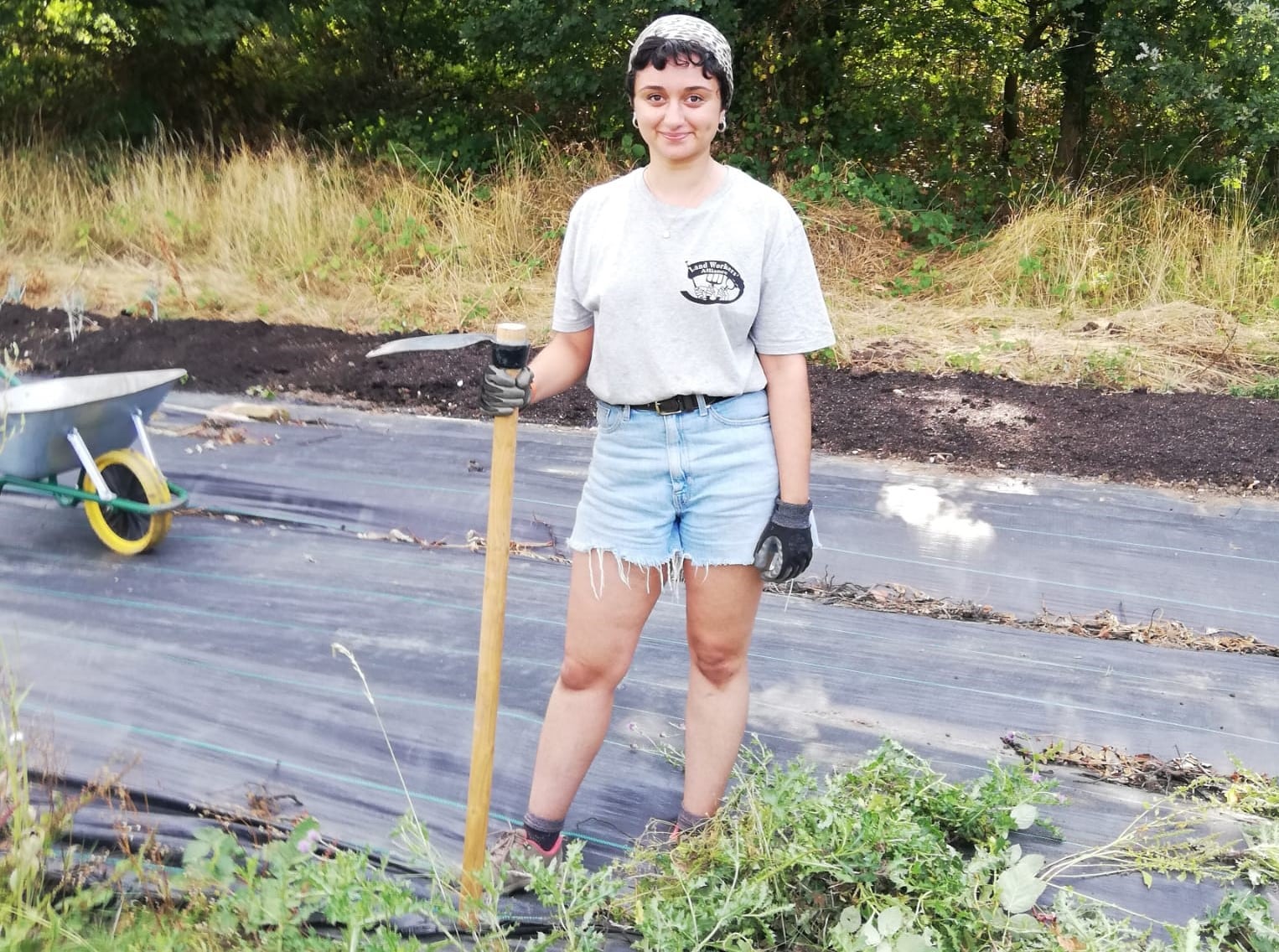Putting agroecological farming onto school curriculums or within careers advice would help young people find a career in sustainable food production.
That is one of the recommendations of a new report by The Landworkers’ Alliance (LWA), timed for release as students receive their A-Level results, which looked into the barriers to young people going into farming.
It highlighted there is a lack of training and paid work opportunities for young people keen on agroecological farming, which holds solutions to food and climate crises by restoring nature and soil, alongside producing food.
Community food activist and grower Jo Kamal, who took part in the research, said: “Farming and food growing weren’t really options for me growing up, they just never seemed like a possible route.
“I don’t know if it was because of my family or maybe wider societal factors and expectations of success. When I was younger, success didn’t look like food growing, but it does now.
“It’s important to me to have a positive effect on the land that I’m working with, rather than against it. It’s also important to have opportunities to develop and have a rewarding career path. So many land work opportunities are voluntary, and that’s really hard, particularly if you are working class,” said Kamal, who found paid entry-level work through the government-funded Kickstart Scheme before it ended.
Barriers also included financial support to early careers in farming, the report found, as well as access to land and employment opportunities.
As such, other recommendations included more on-farm apprenticeships, mentoring and ‘incubator’ farms to build skills and knowledge. And the report called for more government support for small farms, which currently don’t qualify for the new agricultural subsidies if they are below five hectares.
“Contrary to the widespread view that today’s young people are not interested in farming, many are really attracted to the dignified, varied, skilful, team-based land work that is found in agroecological farming systems,” said Holly Tomlinson, LWA’s new entrants policy coordinator.
“The goal of producing sustainable, healthy food and restoring soil health and biodiversity is a key motivation for people who have grown up facing the climate crisis.
“To grow this crucial sector, we need direct financial support and training for new entrants at all stages of their journey, alongside broader system changes that would not only support agroecological new entrants but also help create a more sustainable, vibrant and localised food system,” said Tomlinson.
Farming is also an ageing industry with a lack of new entrants, regardless of sector. The average age of a farmer in the UK is 59 years old, but agroecology attracts a younger workforce with three quarters of LWA members under 50 years of age, and half of them under 40.













School leavers often overlook farming as a viable career option, despite its importance in sustaining society. This oversight stems from misconceptions about the industry’s modern advancements and opportunities for innovation. Encouragingly, initiatives promoting agricultural education and awareness can reshape perceptions. Exploring resources like project management assignment help at https://essays.edubirdie.com/project-management-assignment-help can also equip young individuals with essential skills applicable to agricultural enterprises, fostering a new generation of informed and capable farmers. By bridging knowledge gaps and showcasing farming’s potential, we can inspire more youth to consider this vital sector for their future careers.